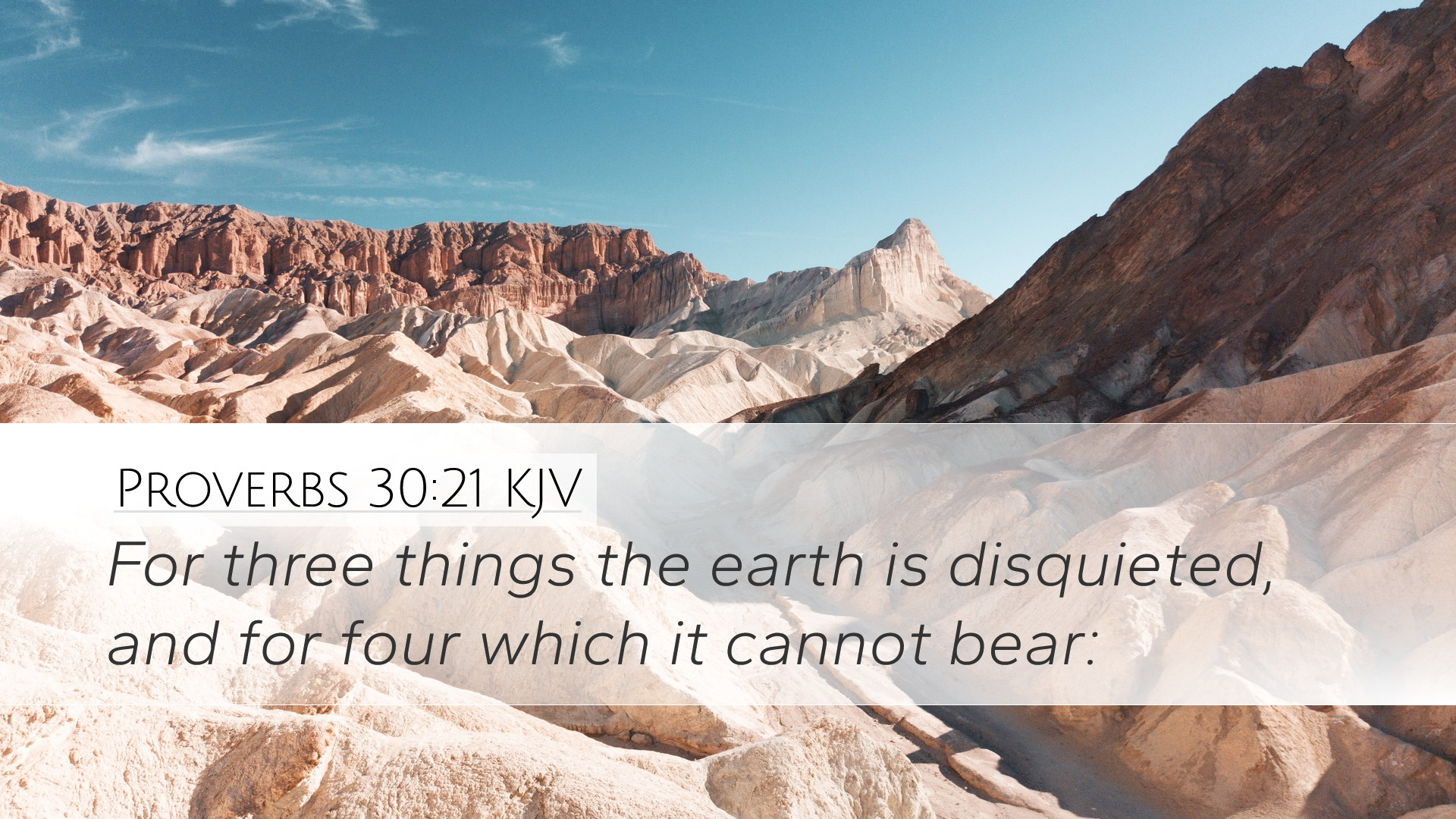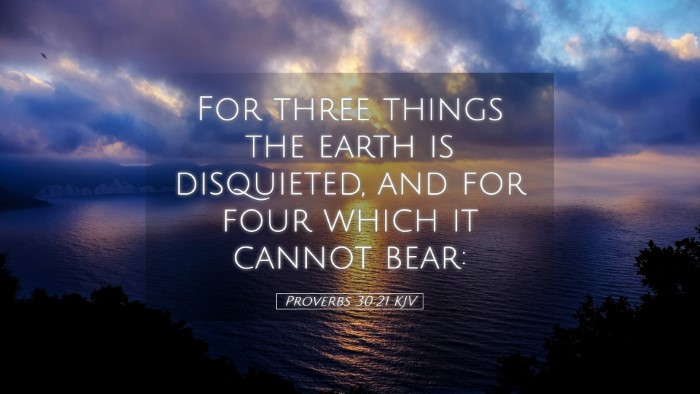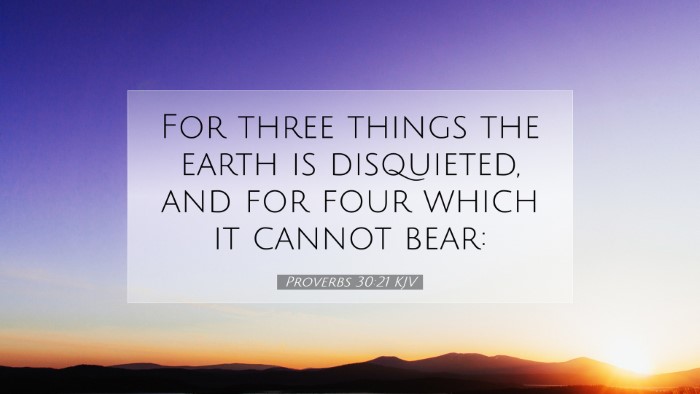Commentary on Proverbs 30:21
Verse (Proverbs 30:21): "For three things the earth is disquieted, and for four which it cannot bear."
Introduction
This verse presents a profound insight into the nature of human society and the earth itself. It introduces a poetic structure that emphasizes the weight of certain conditions that cause disturbance. Notably, the use of the number three and four is significant, highlighting completeness and emphasizing important truths for life's navigation.
Contextual Background
Proverbs, traditionally attributed to Solomon, serves as a collection of wise sayings aimed at imparting wisdom for daily living. Chapter 30, attributed to Agur, introduces a series of numerically structured sayings that culminate in broader lessons about life and accountability.
Key Insights from Commentaries
Matthew Henry
Matthew Henry observes that this verse identifies specific societal and cosmic disturbances. He notes that the term "disquieted" suggests a deep-rooted turmoil that affects the stability of the earth. Henry emphasizes that the list following indicates profound moral truths that resonate across generations.
Albert Barnes
Albert Barnes provides a detailed analysis of the phrase "three things" and "four things." He argues that the repetition serves to capture attention and reflect the weight of the matters at hand. Barnes elucidates the examples of the things that trouble the earth, highlighting the implications for governance and authority.
Adam Clarke
Adam Clarke brings a theological perspective, suggesting that the things mentioned in the verse reflect a divine order in governance. He interprets the disquiet within the earth as not just a physical disturbance but also an indication of moral discord among humanity. Clarke encourages readers to contemplate the broader implications of societal structures and moral decay.
Thematic Analysis
- Human Authority: The verse implies a critique of leadership and authority figures whose actions lead to societal unrest.
- Moral Decay: The disquiet of the earth can be connected to the moral failings of humanity, drawing attention to the need for righteousness.
- Divine Order: The text reflects on the importance of adhering to a divinely sanctioned order, suggesting that straying from it leads to turmoil.
Practical Implications
For pastors, students, and theologians, this verse calls for reflection on the societal structures within our contexts. It is vital to recognize that leadership carries a heavy weight of responsibility to foster peace and stability. The verse encourages an examination of our own roles within these structures and challenges us to address moral failures within communities.
Moreover, it serves as a reminder of the interconnectedness of human actions and the broader implications those actions have on creation. Therefore, engagement in social justice and ethical leadership is not merely a practical pursuit but spiritually indispensable.
Conclusion
Proverbs 30:21 serves as a powerful reminder of the weighty responsibilities borne by leaders—a theme recurrent in biblical literature. The careful attention to the disquiet of the earth calls for introspection, urging both a personal and collective assessment of our contributions to societal unrest. As we seek to live out the wisdom of Proverbs, may we prioritize righteousness, equity, and moral integrity in our spheres of influence.


